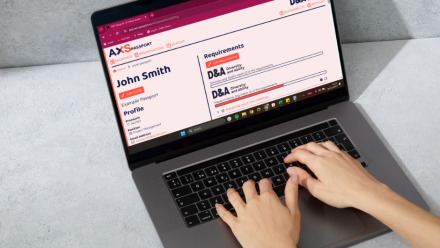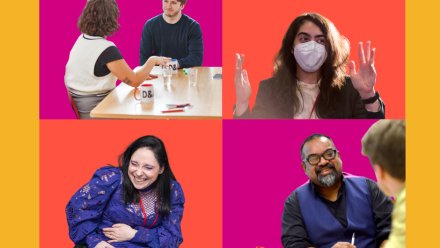Digital inclusion, homelessness & COVID-19: Lessons learned
15th September 2020 by Raphaele von Koettlitz
We have witnessed first hand how the pandemic has exacerbated existing social and economic inequalities. Many with precarious living and working conditions have been hit hard, not to mention those without access to an affordable well-funded healthcare system. So, what does all of this mean for some of the most marginalised people in our society?
We were told to stay at home and self-isolate, but what about those who didn’t have a home to retreat to? The homelessness sector couldn’t “self isolate”. Many front line workers had to be in the field and many rough sleepers had to navigate finding emergency accommodation.
Having provided digital inclusion training to people impacted by homelessness through charities such as Crisis and St Mungo’s since 2014, we were very conscious of the vulnerability of this group during this time.
Staying connected during Covid-19
By default, we are living in a digital world, where so much is carried out online or with the support of technology. Digital inclusion offers the power to connect people and reduce isolation, but it’s also critical in terms of accessing support, information and opportunities. Whilst acknowledging the digital divide that exists across many communities in the country, leaving lots of people without adequate access to the internet or digital tools, by and large, technology has played a vital role in connecting people during the pandemic. Atif Choudhury, the CEO of Diversity and Ability, firmly believes,
“In a digitally dependent age, the future of illiteracy is no longer about those who can read or write, but rather about those that can access the internet and those who cannot…If the inaccessibility of applying for universal credit online for the poor didn’t prove this, surely finding survival mechanisms online in a time of COVID-19 does. Without being able to access a personal device many lives could be lost.”
Impacts of digital exclusion
There are all kinds of increased risks for rough sleepers, who are more exposed to Coronavirus than most and typically have lower immune systems. But beyond this, being digitally excluded had (and will continue to have) very real ramifications. Being connected means having virtual and quick access to information, which during the lockdown was critically important.
During the lockdown, many public services and charities had to close their physical doors and shift some of their services online. Without access to a personal device and an internet connection, for some, posed a challenge in accessing vital information and services. For example, finding out where to pick up food when the shelters, shops and cafes were closed. Or perhaps being able to check where to find emergency accommodation. In times like these, a smartphone is a lifeline.
For many people, the lockdown was a really isolating time. With many charities and outreach services providing reduced and adapted services to minimise risk for staff and their service users, many homeless people were doubly vulnerable. We are all at risk of experiencing anxiety, stress, loneliness and depression due to uncertainty and disruption, but this might have been more acutely felt among those struggling with homelessness.
Mental health issues are statistically more common among homeless people, with 44% disclosing a mental health diagnosis (as opposed to 23% of the general population – source: Health Needs Audit, 2016 – Homeless Link). Suicide rates are also nine times higher among homeless people (Homelessness Kills, 2012), so the withdrawal of face-to-face support had the very real potential of exacerbating the social isolation many already face and driving these numbers up.
Positive initiatives – looking forward
Justlife in collaboration with Citizens Online provided devices to homeless people across Brighton and Hove and teamed up with Jangala who make low-cost easy-to-use internet access systems. The aim was to get people online and connected so they could continue to access vital care and information.
Providing people with technology was only half the battle though. Many people impacted by homelessness are also neurodivergent. It’s estimated that over 50% have significant literacy challenges and need to access information in different ways. Technology is an incredibly malleable tool that can facilitate this, but only if you know how. That’s where we stepped in.
With experience of delivering remote support to disabled and neurodivergent people, we used this knowledge to support individuals and organisations so that they could quickly adapt to the demands of the Coronavirus lockdown. D&A provided digital inclusion training to help facilitate meaningful front line care remotely.
One event hosted by Brighton & Hove Frontline Network and D&A, for those working with people experiencing homelessness, aimed to raise awareness around neurodiversity and digital exclusion. This included the role technology plays in this, with D&A sharing a host of useful tips and tools for frontline workers to explore how they might improve their outreach. Kate Standing, Justlife’s Coordinator said,
“With the current COVID-19 crisis we find ourselves in, this subject is an important part of the conversation around how we best tackle digital exclusion and reach vulnerable communities.”
As often happens in the wake of major social upheaval and disruption, opportunities for positive social reform arise. During the lockdown, over 15,000 homeless people were housed in hotels under the Government’s emergency operation, “Everyone In”, to protect rough sleepers from coronavirus. As highlighted by many campaigners, the pandemic has shown that it is possible to rehouse people when faced with an emergency, so hopefully, this will ignite a more concerted dialogue and coordinated effort around ending homelessness.
Coronavirus has shone a light on inequalities that we can’t and hopefully won’t continue to ignore. The need for a strong social welfare net to catch people as the economy and public health crumble is critical. Among many other things, access to affordable housing, mental health care and a reduction to the digital divide, now more than ever, is essential.


